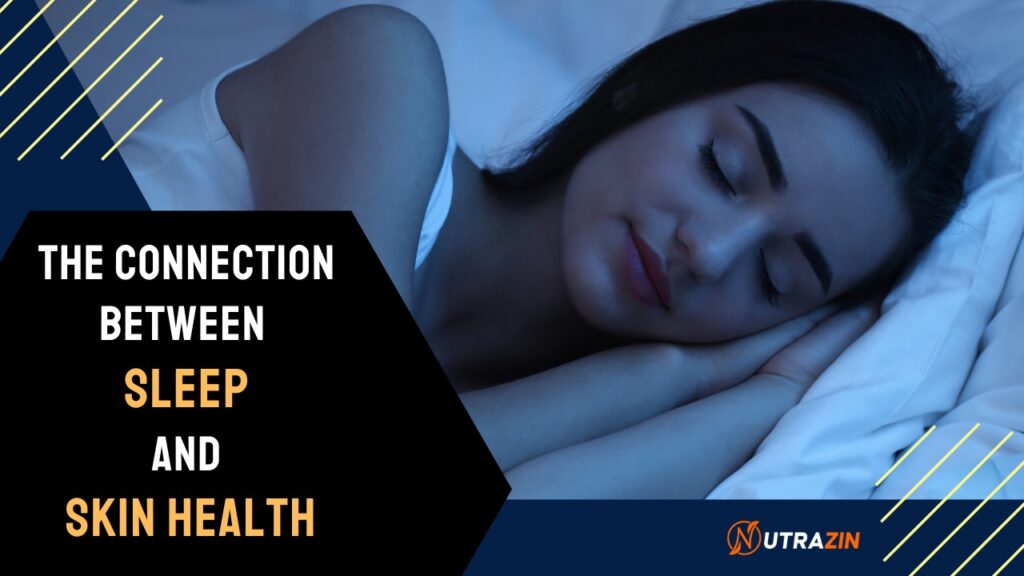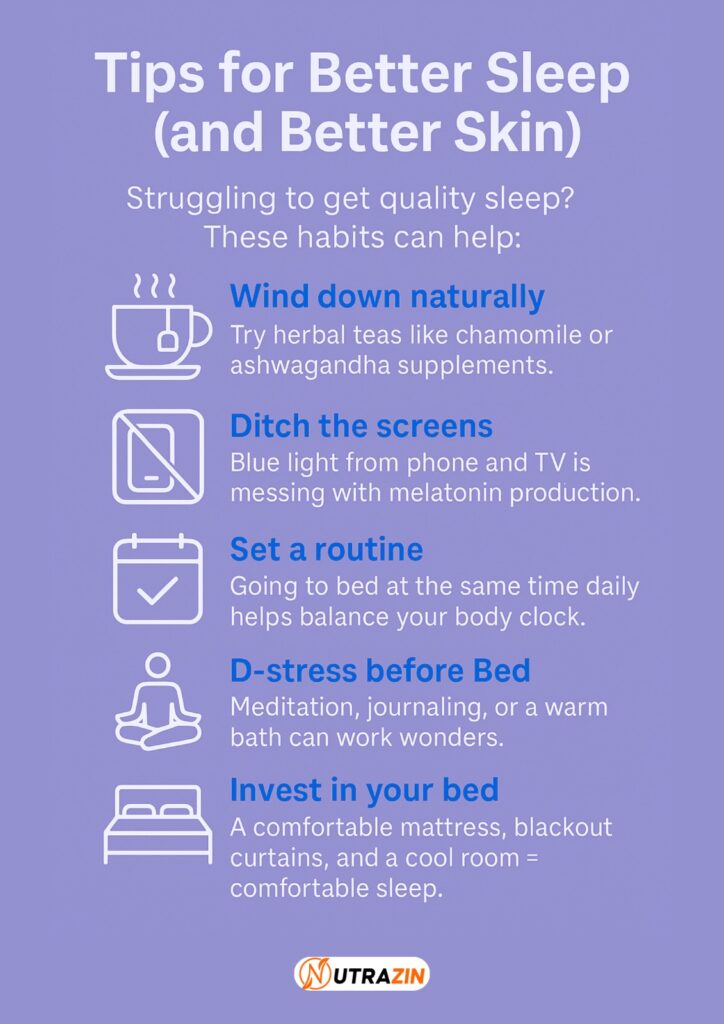
Do you ever wake up after a restless night and notice dull skin, dark circles, or an uninviting puffiness around your face? This is not just in your head – your skin tells you something. Sleep and skin health are deeply connected, and to ignore one can affect the other one that you think.
Let’s dive into how night-time snooze is one of the most powerful beauty rituals you can follow-and when you sleep, what happens to your skin.
What happens to your skin when you sleep?
Your skin isn’t just lying idle while you doze off. The night occurs when your skin is working – repairing, reviving, and renewing itself.
Here’s what goes on behind the scenes:
- Cell Regeneration Peaks: Skin cells regenerate almost twice as fast at night. Collagen production ramps up, and damage from UV rays and pollution is repaired.
- Increased Blood Flow: The blood flow in the skin increases, delivering nutrients and oxygen, giving your skin a healthy morning glow.
- Hormonal Harmony: Growth hormones and melatonin (sleep hormones) contribute to skin repair and antioxidant defense.
Therefore, if you shorten sleep, you also cut the best chance to cure your skin and rejuvenate.
Science behind “beauty sleep”
This is not just a saying – the support of real science is beauty sleep.
1. Lack of sleep = skin dehydration
Lack of sleep can reduce the pH level of your skin, which can weaken the ability to maintain moisture. This is why sleep-deprived skin often seems dry, dull, or wrong.
2. Poor sleep = cortisol increased
When you do not sleep well, cortisol (a stress hormone) is released. It not only triggers inflammation but also breaks collagen, causing sagging and premature aging.
3. Increased Free Radical Damage
The melatonin that is released during sleep helps to neutralize free radicals. Low sleep means less melatonin – and more damage from environmental stressors.
4. Interrupted Barrier Repair
During sleep, skin barriers are strong. Without sufficient rest, the skin’s barrier is compromised, which makes you more vulnerable to breaks, sensitivity, and irritation.
Skin tips at night: maximizing glow
Your skin loves a solid bedtime routine – and a little help is never hurt. Here is how to promote your sleep and skin routine together:
Cleanse Gently, Every Night
Removing makeup, dirt, and environmental toxins before bedtime is needed. Go for a gentle cleanser that does not remove natural oils.
Use a Hydrating Night Cream
Look for ingredients like:
Hyaluronic Acid for hydration
Peptides & Retinol for anti-aging
Ceramides to support the skin barrier
✔ Don’t Skip Your Pillowcase
Use a silk or satin pad – they are soft on the skin and reduce friction (goodbye, sleep lines!).
✔ Elevate Your Head
Taking your head slightly elevated at bedtime can reduce puffiness around the eyes.

Tips for better sleep (and better skin)
Struggling to get quality sleep? These habits can help:
- Wind down naturally – Try herbal teas like chamomile or ashwagandha supplements.
- Ditch the screens – Blue light from phone and TV is messing with melatonin production.
- Set a routine – Going to bed at the same time daily helps balance your body clock.
- D-stress before Bed – Meditation, journaling, or a warm bath can work wonders.
- Invest in your bed – A comfortable mattress, blackout curtains, and a cool room = comfortable sleep.
Real Talk: What 7–9 Hours of Sleep Can Do for Your Skin
- Glowing complexion
- Reduce fine lines and wrinkles
- Less under-eye darkness or puffy eyes
- Hydration and smoothness improved
- Low outbreaks due to hormone balance
And the best part? This is 100% free. No serum can change a good night’s sleep – but sleep can promote the benefits of the serum you use.
General approach to skin welfare
Today, many dermatologists and Ayurvedic experts agree – good skin is not just about what you put on your face. That is also what you do for your thoughts and your body.
Sleep acts as your natural beauty therapy, syncing your inner system, and gives your skin the time it needs to be replenished. So the next time you want to scroll through your phone late at night, remember that “another episode” can cost you the glow of the morning in your skin.
Final Thoughts:
The relationship between sleep and skin health is undeniable. Consistently, comfortable sleep is not just a luxury; This is a skin care requirement. If you invest in good skin care, you need to support what your body deserves – your body needs the rest.
So tonight, instead of a 10-step skin care routine, you may have just a comfortable bed, a cool mind, and a night of sleep.
Because real beauty sleep? It’s not a myth — it’s magic.




